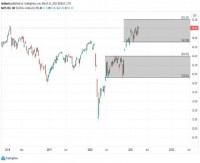|
Opalesque Industry Update - Investors redeemed an estimated $18.1 billion from hedge funds in April. Outflows follow March's large redemptions further pushing YTD flows negative, now estimated at $31.1 billion YTD. Performance lifted overall AUM to just below $3.0 trillion, said eVestment. "As another month passes, investor reactions to the COVID-19 crisis with their hedge fund allocations becomes more clear. There are some segments that appear to be well positioned in investors' eyes, notably products in the credit space with a focus on distressed opportunities, and there are others where the fallout of recent returns is quite significant, particularly among some macro managers. And there are still other segments where while losses are apparent, investors seem content to not react in the short-term," said Peter Laurelli, CFA, eVestment Global Head of Research. April was better than March, but the influence of the crisis and related performance is still being felt. Investors continued to remove assets from the industry in April and it was clear it was a continued reaction to the COVID-19 crisis. Why is that clear? Despite industry flows being negative in three of the last four years, April flows haven't been a major reason. Historically even in positive years, March being a quarter-end has more often than not shown net outflows. While April had been not the mirror in terms of magnitude, it was generally a month where inflows appeared in the data. In April 2020, redemptions were nearly 3x larger any other April since 2009, when large redemptions were still being felt in the wake of the global financial crisis and Madoff scandal, a clear sign many funds are continuing to feel the impact of recent events. There are some large, targeted redemptions taking place for some large firms. For funds with more than $1 billion in AUM, March saw by far the largest outflows as a % of their AUM since the financial crisis. In April, the % of large funds which lost greater than 2% of AUM due to redemptions was still elevated, but came down significantly to a level we have seen in other months within the past few years (~31%). The % of large funds which lost greater than 5% of their AUM due to redemptions, however, did not decline meaningfully in April, meaning large redemptions from some large funds continued at a very elevated rate during the month. Macro outflows are not necessarily widespread, rather driven by targeted redemptions. Following on the point above, the primary source of targeted redemptions in April was from within some large macro funds. In terms of the proportion of the group with redemptions in April, they were middle of the pack, roughly in-line with the broad industry (57%), but for some of those funds which did face redemptions during the month, outflows were meaningful. Performance has absolutely been an influence. Of the ten macro funds which received the largest allocations in April, four of them are positive YTD, while of those with the ten largest redemptions, none are positive YTD. Investors pursuing opportunities in credit markets, notably distressed There were some meaningful inflows for some event driven and credit strategies in April, particularly for some distressed managers. eVestment recently published a short research piece focused on the distribution of returns across traditional fixed income strategies during the crisis and the differences seen in March was beyond any other time in at least the last 25 years. With the expectations for large swaths of defaults and deteriorating credit qualities, it appears investors are allocating opportunistically to this space. Redemptions continued in long/short equity, but outflows are not of the magnitude anticipated. This is not meant to be a rosy point, as the landscape within long/short equity right now is negative. Roughly 66% of reporting managers have faced redemptions YTD with about 62% with outflows in April. What we haven't seen in this space is the kind of large targeted redemptions we've seen from some macro strategies. The implication being that while yes, money is coming out of long/short equity as the COVID-19 crisis continues, the largest long/short managers who have received the bulk of the inflows in the last year or so are not facing the same pressures as some of the largest macro managers, despite producing losses this year. Redemptions continued from some multi-strategy managers. 2020 started out so well for some multi-strategy managers, particularly encouraging after some large redemptions in 2019, but new allocations have mostly been halted and some managers are experiencing meaningful redemptions. Given the trend reversal seen in the beginning of the year (vs. 2019), one would expect this segment can rebound faster than some others. Asia-domiciled manager data still not showing a negative reaction post-COVID-19 onset. Asia-domiciled managers are reporting timely data, and a fair number of funds appear to be receiving new money, offsetting some redemptions. Allocations are going to China-focused fixed income again, as well as to a small handful of macro/managed futures managers. In general, it appears investors are not reacting anywhere near as swiftly or as significantly (though redemptions for some managers likely feel significant) as in 2008/2009. Again, this is a different industry with a different investor base compared to back then, however what is clear is that dissatisfaction with returns is a theme which never changes. |
Industry Updates
How the Coronavirus pandemic influenced hedge fund flows in April
Thursday, May 28, 2020
|
|





 RSS
RSS









